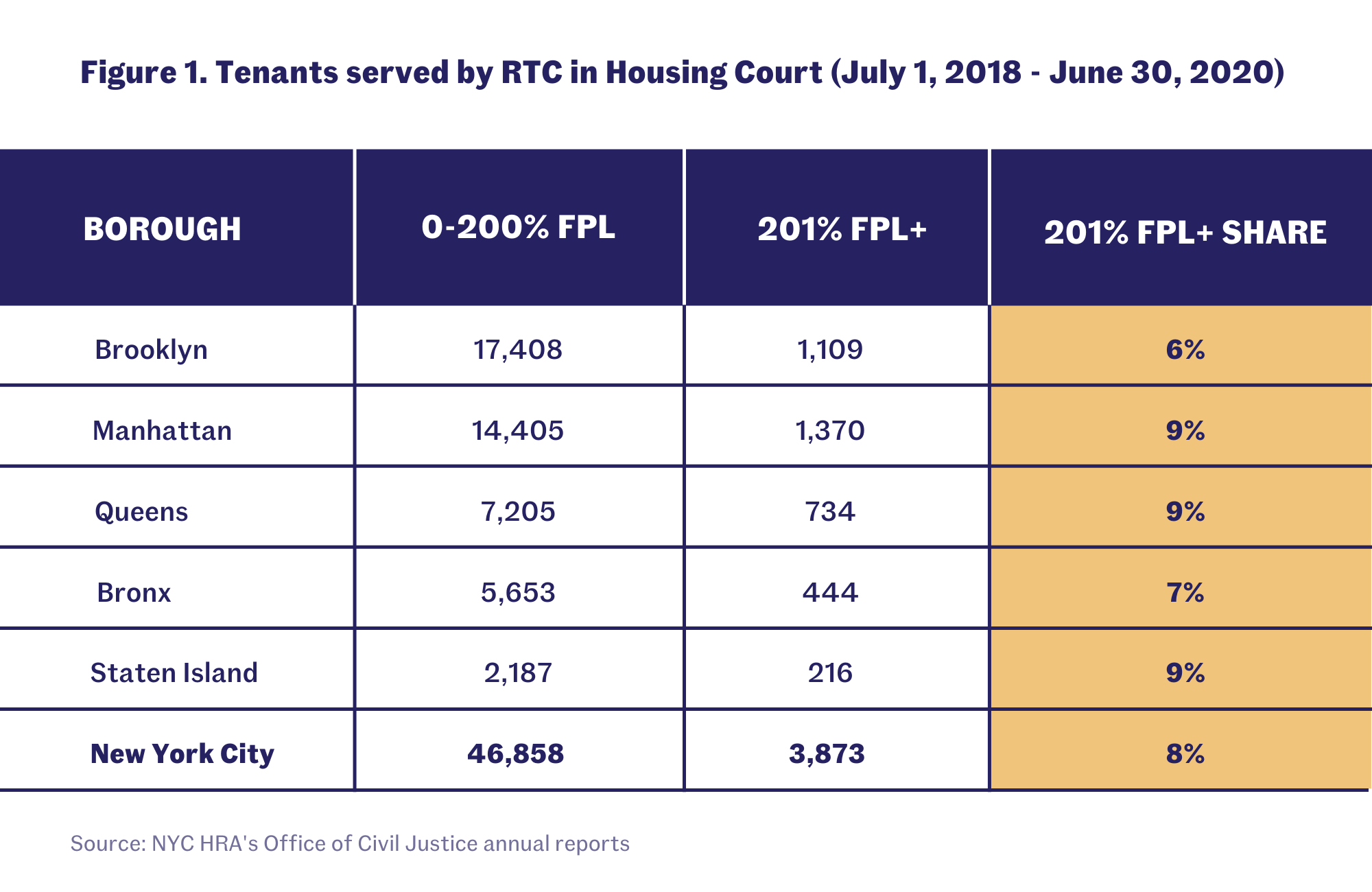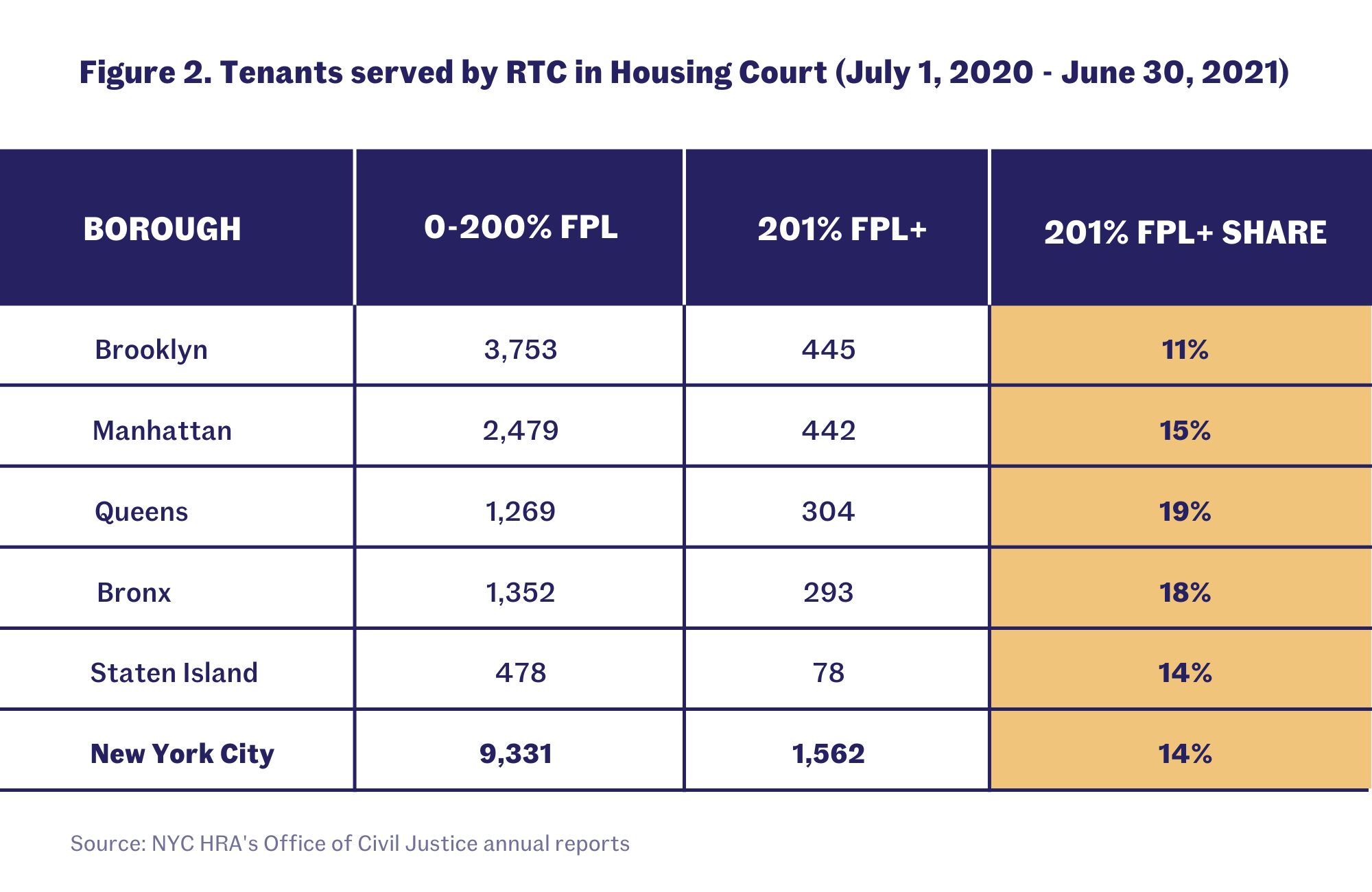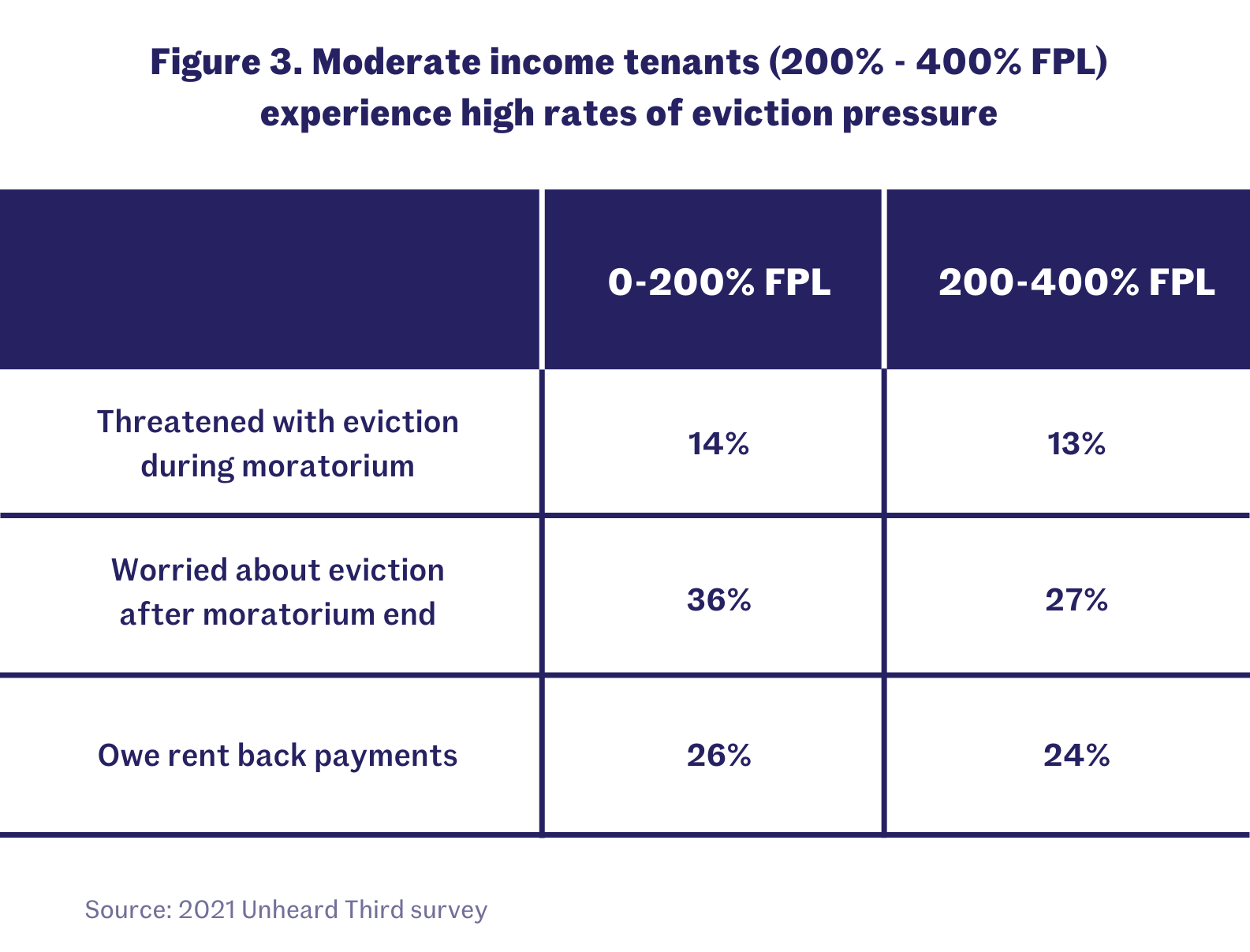Right to Counsel Works: Why New York State’s tenants need universal access to lawyers during evictions
Oksana Mironova
Before the pandemic, evictions were a major contributor to instability in low-income neighborhoods of color. Over the past few years, we have found a correlation between neighborhoods with a high share of Black or Latinx renters and evictions, controlling for poverty levels.
New York City’s Right to Counsel (RTC) law went into effect in 2017, and has been highly effective at keeping tenants in their homes. The law provides tenants who are under 200 percent of the federal poverty line with access to counsel in housing court. Prior to RTC’s implementation, only one percent of tenants were represented by an attorney in eviction cases, magnifying the power imbalance between landlords and tenants. In the last quarter of FY2021, 74 percent of tenants facing eviction cases were represented by a lawyer, according to the Office of Civil Justice. For the third year in a row, 84 percent of tenants represented in housing court by RTC lawyers were able to remain in their homes.
The impact of laws that extend tenants’ rights — like Right to Counsel — go beyond individual housing court cases. When implemented universally, they tip the balance of power that is overwhelmingly skewed toward landlords. In particular, Right to Counsel makes it more difficult for landlords to use evictions as a harassment tactic. In New York City, eviction filings declined by about 30 percent after the implementation of Right to Counsel.
Given the success of New York City’s Right to Counsel law, we are calling on the Governor and State Legislature to implement statewide Universal Right to Counsel (A07570A / S06678A). The Statewide RTC legislation draws on lessons learned from New York City’s program. It extends eligibility to all tenants across the state, covers multiple types of tenant cases (including tenant-initiated cases and appeals), and requires the state to contract with tenant advocacy groups to provide tenant education and advocacy outside of the courtroom.
While NYC’s Right to Counsel law was written to cover tenants up to the 200 percent of the federal poverty line, under the extraordinary impact of the pandemic and the temporary eviction moratorium, legal service providers were able to offer representation to all tenants facing eviction. While the number of tenants served by Right to Counsel lawyers declined (because of an overall decline in eviction cases during the pandemic), the share of tenants above the 200 percent threshold went up from 8 percent to 14 percent.
The increase of RTC’s use by tenants above the 200 percent threshold points to a need for legal representation that is not being met by New York City’s existing Right to Counsel law.
In 2021, the federal poverty line for a three-person household with one child was $21,811. A family earning 400 percent of that threshold would make $87,242 annually. In most of the state, people who fall into this income band include civil servants, teachers, healthcare providers, and other workers the city and state classified as essential during the pandemic. Households in this income category do not qualify for Right to Counsel, but also do not make enough to hire a private attorney to represent them if they face an eviction.
Our 2021 Unheard Third survey found that in New York City, 13 percent of tenants in the 200-400 percent poverty line band faced the threat of an eviction last year, despite the eviction moratorium. This may be indicative of landlords continuing to use evictions as an intimidation and harassment tactic. Further, more than one in four tenants earning between 200-400 percent FPL worried about being evicted after the eviction moratorium ended; nearly one in four owed back rent.
With the end of the eviction moratorium, over 231,000 households in New York State have a pending eviction case. The greatest need for representation is among low-income tenants. However, its crucial to establish Right to Counsel as a universal right and to extend access to legal representation to all tenants facing eviction in New York State. Holding the share of tenants being served by Right to Counsel in New York City constant and projecting out eviction filings into the near future, universal implementation of right to counsel would extend additional rights to 332,000 households statewide, including 186,000 households in New York City.


